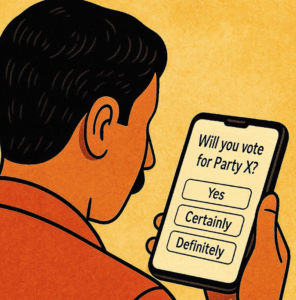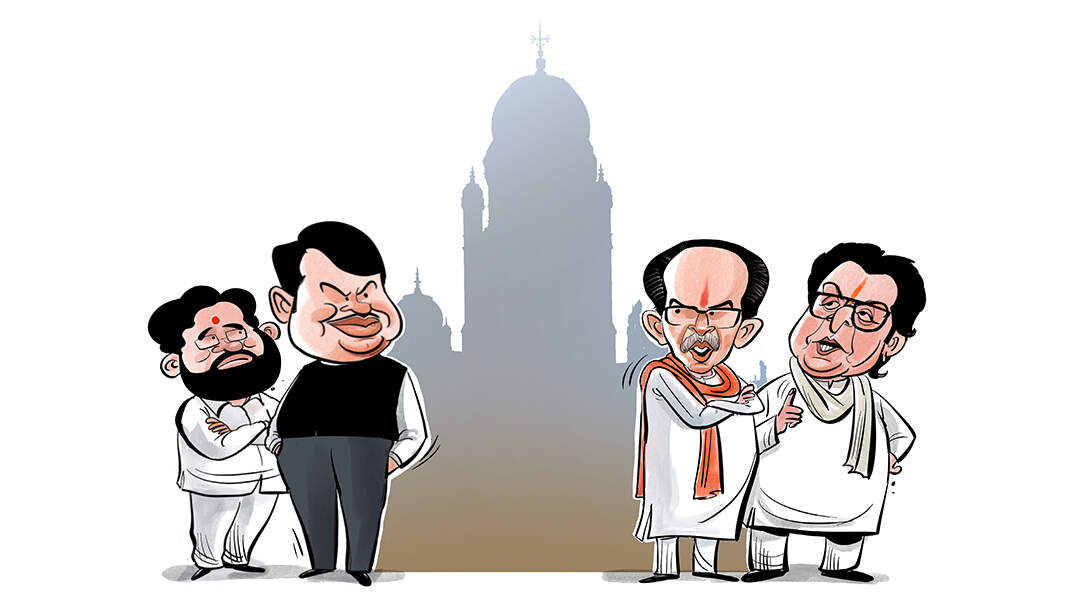Take this pre-poll survey, win exciting prizes

The next assembly election in Tamil Nadu is less than a year away, and political parties have kick-started their poll machines. Some of them sputter, some buzz. Some others grind, knock, chug and squeal. Beneath these noises, IT wings and strategists are at work, churning out videos glorifying their leaders and clients, and memes ridiculing their rivals. Before the big bandwagons roll out to kick up dust on roads less taken during non-poll years, here are a couple of new tricks up the strategists’ sleeves.
Surveys as strategy: Politicians – and their strategists – know that an election is, at the end, a game of numbers – the number of votes, the number of seats. So, why not throw some numbers at the voters before the actual ones are cast and counted? And often the answer is a survey. There are no good surveys and bad surveys; there are only true surveys and fake surveys. A survey is only as good as its purpose: If the idea is to understand the pulse of the voter and find some fundamental data for a SWOT analysis, you do a true survey. If the idea is to manufacture a fictitious strength of a party or a leader to boost his public image – and the confidence of the cadres – you cook up the numbers. Despite the hygiene of the numbers, both surveys have their utility.
When it comes to surveys for internal analysis, confirmation bias and wishful thinking can jeopardize a party’s strategies. Hence the importance of apolitical professionals (though sometimes a veteran politician with his ear to the ground can read the public pulse better than a young professional armed with AI and a battalion of data crunchers). Propaganda surveys are a different ball game where who delivers the message to the public is sometimes as important as what is delivered. How many of us would believe if a party says its internal survey shows a clear victory for it with a 40% vote share?
Here comes the utility of a third party who is apparently not connected to the party. Wouldn’t it be better if the propagator belongs to – or has a façade of belonging to – another group? So, here it was, a bunch of social media posts from a handle that identifies itself as a BJP supporter that says Vijay’s Tamilaga Vettri Kazhagam (TVK) will win the polls with a vote share of more than 40%. No prizes for guessing who was sending these links to journalists.
Politicians as authors: Political leaders writing Op-Ed pieces in newspapers is a growing trend since Prime Minister Narendra Modi’s bylines started appearing in mainstream media, including this paper. I find this a healthy development, irrespective of whether the pieces are ghost-written. There are a few decent writers among politicians; for those who aren’t good at it, there is no harm in using a professional writer to put across your views in a newspaper to reach a discerning audience.
When a strategy group approached me to contribute a political leader’s article in this paper, I agreed, with the condition that it should be a piece of either opinion or analysis (that meets our standards), but not one masquerading as the other. If the politician’s idea of having his name in the newspaper is to blame his opponents and launch a political campaign, we could well interview him (and there’s always the option of advertising). Nobody expects an unbiased analysis from a politician, but every reader expects logic, reasoning and perspective from an Op-Ed writer, even if one doesn’t agree with the author’s points. The same applies to opinions.
Here’s wishing our readers a year of some engaging political stories.
Disclaimer
Views expressed above are the author’s own.
END OF ARTICLE




